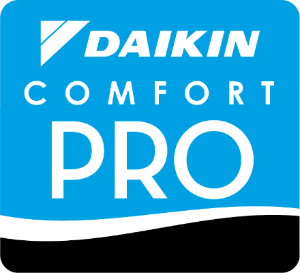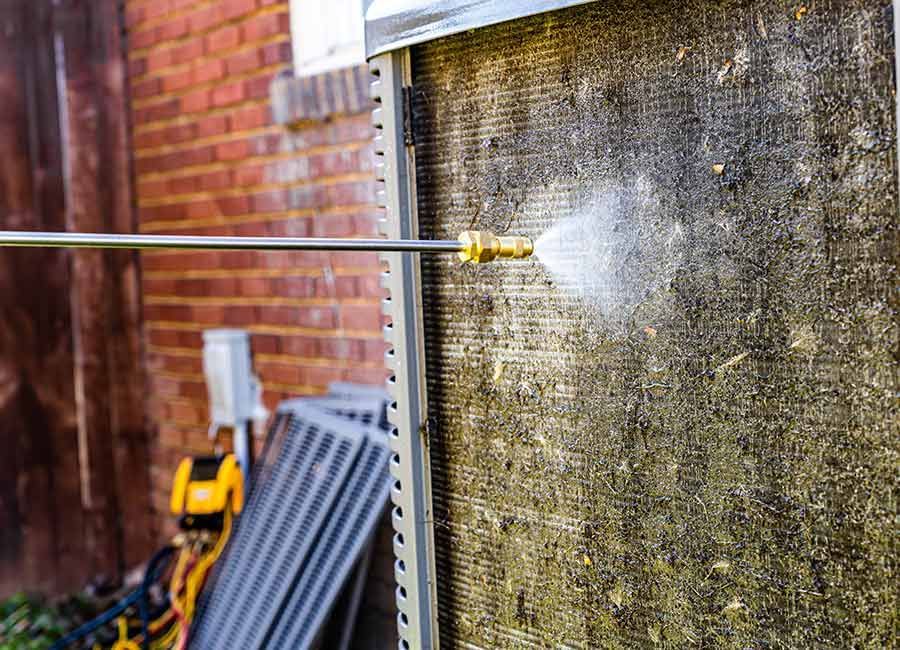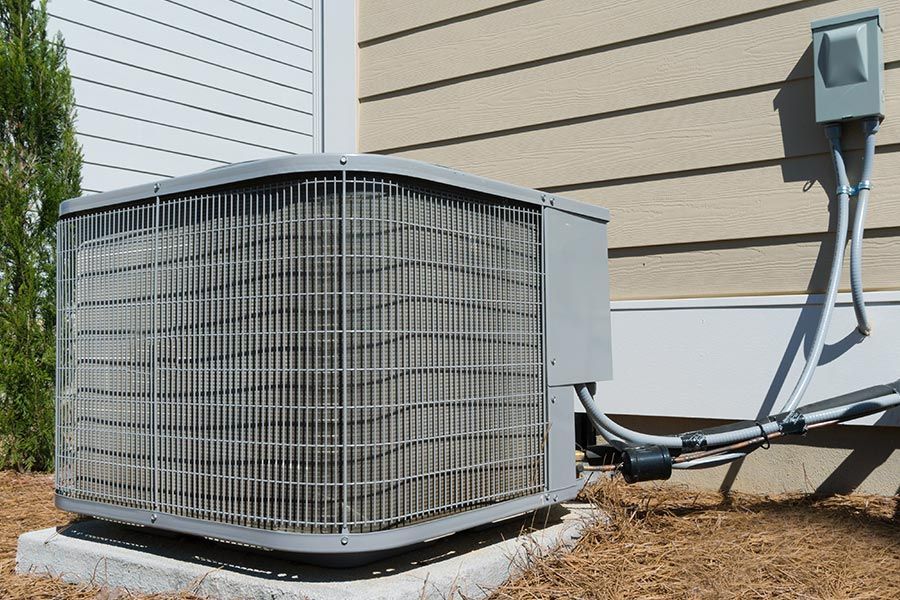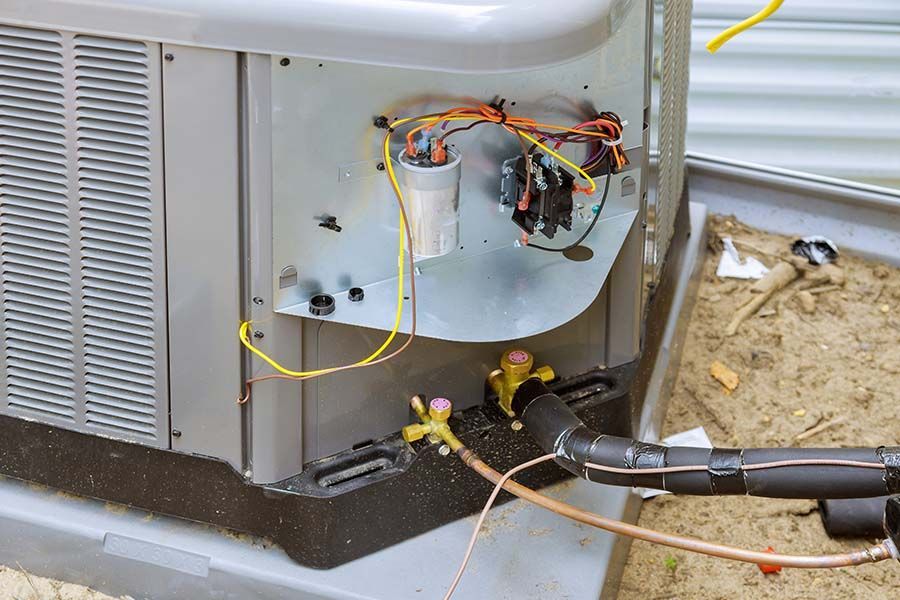CALL OUR EXPERTS - 24/7:
Discover the Top Benefits of Heat Pumps for Homeowners
Imagine your home as a living, breathing entity, and the heart of its comfort system beats with the rhythm of a heat pump. You’ll find that these systems offer more than just temperature control; they’re a gateway to energy efficiency and cost savings. By embracing heat pumps, you could cut electricity usage by up to 50%, enhancing your indoor environment and financial health. And there’s more to uncover about how they improve air quality and offer year-round comfort. Isn’t it time you explored what else they can do for you?
Energy Efficiency
Heat pumps greatly enhance energy efficiency by transferring heat rather than generating it, reducing energy consumption and lowering utility bills. Installing a heat pump moves heat from one place to another using a refrigerant cycle, much like a refrigerator. During colder months, it extracts heat from outdoor air (or the ground, in geothermal systems) and transfers it inside. Conversely, it reverses the process in warmer months, removing heat from your home to cool it. This method is inherently more efficient than conventional heating systems that burn fuel or convert electricity directly into heat.
You’ll find that heat pumps operate efficiently even in variable climates. By leveraging their ability to transfer heat, they provide a consistent and reliable comfort level, helping you serve others by creating a welcoming, energy-conscious environment. When you choose a heat pump, look for models with a high coefficient of performance (COP) and seasonal energy efficiency ratio (SEER), which indicate superior energy use. With less energy required to maintain desired temperatures, you’ll reduce your home’s carbon footprint, aligning with a commitment to sustainability. Investing in heat pumps supports your immediate community and the larger global effort to conserve energy resources.
Cost Savings
By choosing a heat pump, you will enhance energy efficiency and considerably cut down on your heating and cooling costs. Heat pumps transfer heat rather than generate it, making them much more energy-efficient than conventional HVAC systems. For each unit of electricity consumed, a heat pump can deliver up to three units of heating or cooling energy. This efficient operation translates to significant cost savings on your utility bills.
You’ll find that heat pumps provide consistent savings throughout the year. In moderate climates, they can reduce electricity use for heating by about 50% compared to electric resistance heating systems. Additionally, they efficiently dehumidify the air, offering better cooling performance during warmer months. While the initial investment might seem higher, the long-term savings on monthly bills and potential incentives or rebates make heat pumps a financially sound choice.
Furthermore, routine maintenance of heat pumps is simpler and often less costly than traditional systems, ensuring that they remain efficient throughout their lifespan. By investing in a heat pump, you’re not just saving money; you’re also contributing to a more sustainable, cost-effective way of serving the needs of your household.
Environmental Impact
Opting for a heat pump considerably reduces your carbon footprint by utilizing renewable energy sources and minimizing greenhouse gas emissions compared to traditional heating systems. Heat pumps operate on electricity, and when paired with renewable energy like solar or wind, they become exceptionally eco-friendly. Heat pumps achieve 300-400% efficiency rates by transferring heat rather than generating it, dwarfing the 90% efficiency of conventional gas or oil systems. This high efficiency significantly reduces the amount of fossil fuel combustion required, thereby decreasing CO2 emissions.
When you choose a heat pump, you’re actively contributing to environmental preservation. Heat pumps harness ambient air, ground, or water sources, making them sustainable choices that don’t deplete natural resources. Furthermore, they aid in reducing air pollutants such as nitrogen oxides and sulfur dioxide, which are common byproducts of fossil fuel-based systems.
Incorporating a heat pump into your home aligns with global efforts to combat climate change and supports community well-being by promoting cleaner air quality. Adopting this technology plays a vital role in fostering a healthier environment for current and future generations.
Year-Round Comfort
Beyond their environmental benefits, heat pumps provide unparalleled year-round comfort by efficiently heating and cooling your home, adapting to seasonal changes with precise temperature control. During winter, the heat pump extracts warmth from the outside air, even in low temperatures, and transfers it indoors to maintain a cozy environment. Conversely, it reverses the process in summer, removing heat from your home to keep it cool and invigorating. This bidirectional operation guarantees that your living space remains comfortable regardless of the season.
The efficiency of heat pumps stems from their capacity to move heat rather than generate it, resulting in lower energy consumption than traditional HVAC systems. You’ll experience consistent temperatures throughout your home, eliminating hot or cold spots that can occur with conventional systems. Advanced thermostatic controls allow you to set and maintain your preferred temperature easily, providing personalized comfort for you and your family.
Furthermore, heat pumps operate quietly, allowing you to enjoy a peaceful home environment without the intrusive noise often associated with standard heating and cooling units. By investing in a heat pump, you not only enhance your home’s comfort but also contribute to a sustainable future, aligning with your values of service and care for others.
Low Maintenance
Heat pumps require minimal upkeep, making them a convenient and efficient choice for homeowners seeking reliable heating and cooling solutions. Unlike traditional HVAC systems that often demand frequent attention, heat pumps need only biannual check-ups to guarantee peak performance. This simplicity in maintenance directly translates to reduced service costs and minimal disruption to your daily routine, allowing you to focus on more important tasks, like serving your family and community.
To keep your heat pump running smoothly, you should regularly clean or replace the air filters every one to three months, depending on usage and air quality. This simple task helps maintain airflow efficiency and prevents unnecessary strain on the system. Additionally, inspect the outdoor unit for debris, such as leaves or dirt, which could obstruct airflow. Clear these obstacles to guarantee the heat pump operates at peak efficiency.
Annually, it’s wise to schedule a professional inspection to check refrigerant levels, electrical connections, and thermostat calibration. This professional maintenance guarantees that your system remains in top condition, maximizing its lifespan and performance. By adhering to these straightforward maintenance steps, you can enjoy a reliable, low-maintenance heating and cooling system that supports your commitment to serving others effectively.
Versatile Installation
In addition to their low maintenance needs, heat pumps offer versatile installation options, allowing them to be seamlessly integrated into various home layouts and existing systems. Whether adding to a newly constructed property or retrofitting an older home, heat pumps can adapt to your specific requirements. Their flexibility stems from the availability of different types: air-source, ground-source, and ductless mini-split systems, each suited for varying conditions and preferences.
Air-source heat pumps are ideal if you have existing ductwork. They connect directly, minimizing the need for extensive modifications. While more complex to install, ground-source heat pumps are perfect for homes with ample yard space, utilizing underground loops to maximize efficiency. For homes without ducts, ductless mini-splits provide a straightforward solution. These units require only a small hole for the conduit, preserving your home’s structural integrity while offering zoned heating and cooling.
Improved Air Quality
Utilizing advanced filtration systems, heat pumps enhance indoor air quality by removing dust, allergens, and pollutants from your home environment. These systems are designed to provide a healthier atmosphere for you and your family, contributing to overall well-being. The filtration process captures and eliminates microscopic particles that often go unnoticed but can greatly affect health, especially those with respiratory issues.
Here’s how heat pumps improve air quality:
- Efficient Particle Removal: High-efficiency filters in heat pumps trap particles as small as 0.3 microns, including pollen, mold spores, and dust mites. This guarantees that the air circulating in your home is clean and free from common irritants.
- Continuous Circulation: Heat pumps prevent air stagnation by maintaining a consistent airflow, reducing the buildup of pollutants, and guaranteeing fresh air is always available. This continuous circulation is key to keeping indoor environments healthy.
- Humidity Control: Heat pumps regulate humidity levels, which is essential for inhibiting mold and mildew growth. Proper humidity control enhances comfort and reduces the risk of allergen proliferation.
Investing in a heat pump means prioritizing the health and comfort of those you care about.
Long-Term Investment
Investing in a heat pump offers homeowners a reliable and efficient solution that reduces energy bills over time and enhances property value. By integrating advanced technology, heat pumps transfer heat rather than generate it, achieving an impressive coefficient of performance (COP). This means you get more heating or cooling output for every unit of energy input, translating into significant savings. Over the lifespan of a heat pump, typically 15 to 20 years, these savings accumulate, providing substantial financial benefits.
Moreover, a well-maintained heat pump system can increase your property’s market appeal. Potential buyers often seek energy-efficient homes, and a heat pump installation signals lower future utility costs and reduced carbon footprint—key factors for environmentally conscious buyers. Additionally, many regions offer incentives or rebates for heat pump installations, further enhancing your return on investment.
It’s essential to evaluate the long-term implications of your investment. While initial costs may be higher compared to conventional HVAC systems, the consistent energy savings and potential property value increase make heat pumps a prudent choice. By opting for a heat pump, you’re not just improving your home but contributing to a more sustainable future.
Safe Operation
Heat pumps operate with a high level of safety due to their design, which eliminates combustion-related risks by transferring heat instead of burning fuel. This method considerably reduces hazards like carbon monoxide leaks or fire risks, making it an attractive option for those prioritizing safety. When you’re responsible for the well-being of others, it’s essential to choose systems that minimize potential dangers while maximizing comfort.
Consider these key safe operation features of heat pumps:
- No Combustion: Heat pumps don’t burn fuel, eliminating the production of potentially harmful gases. This feature inherently reduces the fire risk and improves indoor air quality, offering peace of mind for everyone under your care.
- Integrated Safety Controls: Modern heat pumps have advanced safety controls and sensors. These systems continuously monitor operations, preventing overheating and automatically shutting down under fault conditions, ensuring ongoing safety and reliability.
- Low Operating Temperatures: Unlike traditional heating systems, heat pumps operate at lower temperatures, which minimizes the risk of accidental burns or fires. This is especially beneficial in environments where people of all ages may interact with the equipment.
Incentives and Rebates
While prioritizing safety and comfort, homeowners can benefit financially through various incentives and rebates for heat pump installations. By investing in energy-efficient technology, you not only reduce your carbon footprint but also take advantage of programs designed to make this change more affordable. Many governments and utility companies offer rebates that can greatly offset the initial installation costs. For instance, federal tax credits in the United States may cover up to 30% of the installation expenses, subject to specific eligibility criteria.
To maximize these benefits, it’s essential to research the specific programs available in your area. Local utility companies often provide rebates based on the heat pump's Seasonal Energy Efficiency Ratio (SEER) and Heating Seasonal Performance Factor (HSPF) ratings. Higher ratings typically yield bigger rebates. Additionally, some states offer supplemental incentives, stacking savings upon federal offers. Accessing these rebates often requires pre-approval, so initiate this process early by consulting with your contractor.
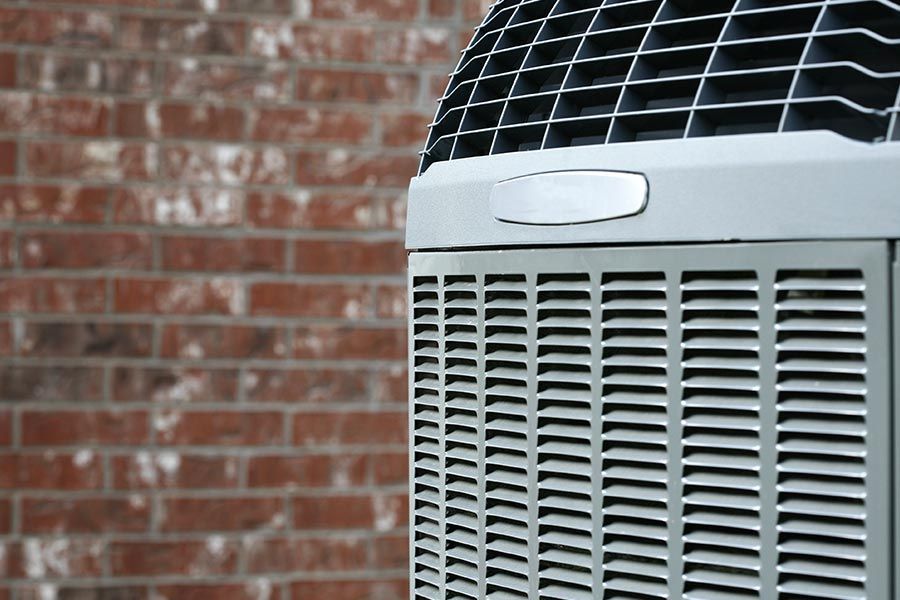
Conclusion
Investing in a heat pump is like planting a money tree in your backyard; it grows benefits year after year. You’ll enjoy energy efficiency and cost savings while reducing your carbon footprint. The system guarantees year-round comfort, minimal maintenance, and improved indoor air quality. Designed for safe operation, heat pumps eliminate combustion risks. Plus, with available incentives and rebates, you’re making a smart choice for the environment and a wise long-term investment.
Frequently Asked Questions
How Do Heat Pumps Perform in Extremely Cold Climates?
In extremely cold climates, heat pumps maintain efficiency by utilizing advanced inverter technology and supplemental heating systems. You’ll appreciate their ability to deliver consistent warmth while minimizing energy consumption, ensuring comfort for those you serve.
Are Heat Pumps Noisy During Operation?
Modern heat pumps are quieter than traditional systems, often producing sound levels of around 40-50 decibels. Manufacturers design them with noise-reducing features, ensuring minimal disruption while efficiently serving your home’s heating and cooling needs.
Can Heat Pumps Be Integrated With Smart Home Systems?
Yes, you can integrate heat pumps with smart home systems. Use compatible thermostats or control systems to manage heating efficiently. This integration enhances convenience and energy efficiency and allows remote monitoring, aligning with your goal of serving others effectively.
What Are the Potential Drawbacks of Using Heat Pumps?
Think of heat pumps as intricate clocks; they can tick efficiently but may struggle in extreme cold. Installation costs can be high and require electricity, impacting sustainability if your grid’s not green. Consider budget and climate.
How Long Is the Installation Process for Heat Pumps?
You’re looking at an installation timeframe of one to three days for heat pumps. This depends on your home’s needs, existing ductwork, and the system's complexity. Make certain professionals handle the installation for ideal efficiency.
You might also like
Book a Service Today
We will get back to you as soon as possible
Please try again later
HVAC, Electrical, and Plumbing Services - Comprehensive Solutions You Can Trust
At Professional Services, we specialize in delivering top-notch HVAC, electrical, and plumbing services that keep your home running smoothly year-round. Whether you need a new furnace installed, electrical panel repair, or emergency plumbing, our team of certified technicians has the expertise and experience to handle any job with precision and care. We prioritize safety, efficiency, and customer satisfaction, ensuring every system in your home operates at its best. From AC repairs to fixing faulty wiring, count on us for reliable solutions that meet your specific needs. Contact us online to schedule an appointment or call (262) 218-2636.
SITE LINKS
Office Hours:
Mon-Fri: 7:00 AM - 4:00 PM
24 hour on call service available for
Emergencies only
Plumbing:
Doing Business As Hockers #1281350 - PM
OUR SERVICES
All Rights Reserved | Professional Services

